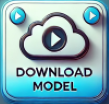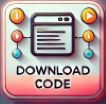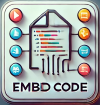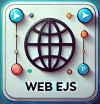actual deployment https://iwant2study.org/moodle402/mod/laejss/view.php?id=91
EJS6.02 version with CSS correctly rendered
Translations
| Code | Language | Translator | Run | |
|---|---|---|---|---|
 |
||||
Credits
JW (This email address is being protected from spambots. You need JavaScript enabled to view it.); Victoria Chanel Lee (This email address is being protected from spambots. You need JavaScript enabled to view it.)
Sample Learning Goals
[text]
21CC Navigator Future Self Quiz Study Guide
Quiz
- What is the primary purpose of the 21CC Navigator Future Self Quiz?
- How does the Easy JavaScript Simulations (EJS) framework contribute to the effectiveness of the 21CC Navigator Future Self Quiz?
- Describe the "Interactive Self-Assessment" feature of the quiz and how it benefits students.
- Explain how the EJS framework enables "Customized Learning Paths" within the quiz.
- What specific improvement was made to the quiz's automation and how does it benefit students and teachers?
- Suggest two ways educators can integrate the 21CC Navigator Future Self Quiz into their teaching.
- What educational value does the quiz offer beyond simple assessment?
- How does the use of EJS in the quiz demonstrate the role of technology in future-ready education?
- What types of classrooms would particularly benefit from using the 21CC Navigator Future Self Quiz?
- Beyond academic preparation, what other aspects of student development does the quiz support?
Quiz Answer Key
- The primary purpose of the 21CC Navigator Future Self Quiz is to help students develop essential 21st-century competencies (21CC) by encouraging self-reflection and personal growth. It aims to equip them with critical skills needed for success in a rapidly changing world.
- EJS contributes to the quiz's effectiveness by providing an interactive and engaging experience. Its dynamic elements respond to user interaction in real-time, making the reflection process more insightful. The user-friendly interface allows educators to create custom simulations without extensive coding knowledge.
- The "Interactive Self-Assessment" feature involves students rating themselves on a scale for statements related to 21CC. EJS makes this assessment dynamic by using sliders or clickable options that provide immediate visual feedback, enhancing engagement and promoting self-awareness.
- EJS allows the quiz to adapt based on student responses, providing personalized learning paths. This means the quiz can offer simpler prompts for younger students and more complex questions for older students, ensuring it is developmentally appropriate and caters to individual needs.
- The quiz's automation was improved by eliminating the manual copying and pasting of results into the Student Learning Space (SLS). Now, results are automatically transferred, providing instant visual feedback to students and saving time for teachers. This motivates students by clearly showing their progress.
- Educators can integrate the quiz into lessons on personal growth, social-emotional learning, and cultural literacy. They can also use it to initiate discussions about students' attitudes and behaviors related to respect, empathy, and other key competencies.
- Beyond assessment, the quiz fosters social-emotional learning, global citizenship, and cultural literacy. It encourages reflection on personal roles in a diverse world, promoting empathy and cross-cultural understanding from an early age.
- Using EJS showcases technology's potential to personalize and enhance learning. The interactive features make abstract concepts like empathy and global awareness more tangible for students. This promotes active learning, encouraging students to take ownership of their development.
- Classrooms aiming to prepare students holistically, focusing on social and emotional skills alongside academic knowledge, would benefit most. The quiz's interactive approach fosters self-awareness and encourages a growth mindset, vital for future-ready individuals.
- Beyond academics, the quiz supports social and emotional development. It encourages students to reflect on their attitudes and behaviors, promoting self-awareness, empathy, respect for diversity, and a sense of responsibility as global citizens.
Essay Questions
- Discuss the importance of 21st-century competencies in preparing students for success in a rapidly changing world.
- How can interactive assessment tools like the 21CC Navigator Future Self Quiz contribute to personalized learning experiences?
- Analyze the role of technology in fostering social-emotional learning and promoting global citizenship among students.
- Evaluate the effectiveness of self-reflection and feedback in supporting student growth and development.
- Propose strategies for integrating the 21CC Navigator Future Self Quiz into existing curriculum and teaching practices to maximize its educational value.
Glossary of Key Terms
- 21st-century competencies (21CC): Essential skills and knowledge individuals need to thrive in the modern world, encompassing areas like critical thinking, communication, collaboration, creativity, and cultural awareness.
- Easy JavaScript Simulations (EJS): An open-source tool enabling educators to create interactive and visually rich simulations for learning, promoting engagement and deeper understanding.
- Interactive Self-Assessment: A dynamic assessment method where students actively participate, providing input and receiving immediate feedback, encouraging self-reflection and awareness.
- Customized Learning Paths: Individualized learning experiences tailored to students' needs and responses, adapting content and difficulty levels to maximize learning outcomes.
- Automation: The use of technology to perform tasks automatically, such as transferring quiz results, minimizing manual effort and allowing more focus on analysis and instruction.
- Student Learning Space (SLS): An online platform for educational resources and activities, facilitating interactive learning and communication between students and educators.
- Social-emotional learning: The process of developing self-awareness, managing emotions, building relationships, and making responsible decisions, crucial for personal and social well-being.
- Global citizenship: An understanding of interconnectedness, valuing diversity, respecting different cultures, and taking action to address global challenges.
- Cultural literacy: The ability to understand and navigate different cultures, communicate effectively, and appreciate diverse perspectives, promoting inclusivity and understanding.
- Holistic development: An approach to education that focuses on nurturing all aspects of a student's well-being, including academic, social, emotional, and physical development.
For Teachers
The 21CC Navigator Future Self Quiz (Secondary Version) is a dynamic educational tool designed to help students develop essential 21st-century competencies (21CC) in an engaging way. Built using Easy JavaScript Simulations (EJS), the quiz provides an interactive experience that supports self-reflection, personal growth, and the cultivation of critical skills needed for thriving in a fast-changing world.
Structure and Purpose:
The 21CC Navigator Future Self Quiz leverages the flexibility of EJS to create an interactive and personalized assessment experience for students. By encouraging students to reflect on their attitudes and behaviors, the quiz aims to equip young learners with the skills necessary for personal development and success in school and beyond. The EJS framework allows for dynamic interactions that make the reflection process more engaging and insightful.
Key Features of the EJS Quiz:
Technical Aspects of EJS:
The Easy JavaScript Simulations (EJS) framework is an open-source tool that allows educators to create interactive, visually rich simulations for learning purposes. EJS is particularly user-friendly as it provides a graphical interface that reduces the need for extensive coding knowledge, making it accessible for teachers who want to create custom simulations without deep technical expertise. The framework integrates JavaScript to create dynamic elements that respond to user interactions in real-time, ensuring that the 21CC Navigator Future Self Quiz delivers an engaging experience. Educators can easily modify variables and adapt the interface to suit the developmental needs of primary students, enabling tailored learning experiences.
EJS also supports exporting simulations as HTML files, making them easily shareable and embeddable in various educational platforms, including the Student Learning Space (SLS). This flexibility allows educators to seamlessly integrate interactive content within their existing lesson plans, providing a more interactive and immersive experience for students.
-
Interactive Self-Assessment: The quiz is designed to be interactive, with students asked to rate themselves on a scale ranging from "Strongly Disagree" to "Strongly Agree." Statements such as “I am respectful to people who have different beliefs” and “I am interested in learning about the issues around the world” prompt students to reflect on their attitudes toward others. The use of EJS makes this assessment more dynamic, with sliders or clickable options that provide immediate visual feedback, enhancing engagement.
-
Customized Learning Paths: The flexibility of EJS allows the quiz to adapt based on students' responses, providing a personalized reflection experience. For younger students, the quiz offers simpler prompts and more guided questions to help them reflect on topics relevant to their everyday lives, such as kindness, teamwork, and respecting differences.
-
Automation: One of the strengths of EJS is its ability to create visual representations. The Future Self Quiz uses this capability to visually map students' progress over time, allowing them to see how their attitudes and competencies evolve. Previously, students and teachers had to manually copy and paste the results into the SLS (Student Learning Space) text input, but now the process is fully automated, providing immediate visual feedback. This improvement enhances motivation for young learners, helping them understand their growth in areas such as cultural awareness and empathy.
How Educators Can Utilize This Tool:
Educators can make the most of the 21CC Navigator Future Self Quiz by integrating it into lessons focused on personal growth, social-emotional learning, and cultural literacy. Teachers can use the quiz to start meaningful discussions about students' attitudes and behaviors, helping them articulate their thoughts on respect, empathy, and other key competencies.
Since the quiz is built using EJS, educators have the flexibility to adapt it to meet the unique needs of their classrooms. For example, teachers can add or modify questions to reflect issues relevant to their students or adjust the difficulty level of prompts to cater to different age groups. Furthermore, the automated features of EJS reduce the manual workload for educators, allowing them to focus more on interpreting results and facilitating follow-up activities. By leveraging the visual feedback and dynamic interaction capabilities of EJS, educators can create an environment where students feel encouraged to actively participate and reflect on their learning journey.
Educational Value:
The 21CC Navigator Future Self Quiz, developed using EJS, supports the holistic development of students by integrating aspects of social-emotional learning, global citizenship, and cultural literacy into an engaging, interactive format. It encourages young learners to reflect on their role in a diverse and interconnected world, promoting empathy and cross-cultural understanding from an early age.
By using EJS, the quiz can be easily modified and customized by educators to suit the specific needs of their classrooms. This flexibility ensures that the tool remains relevant and impactful, providing students with opportunities to engage deeply with the competencies that are most important for their development. The interactive nature of the EJS framework also makes the quiz more than just an assessment tool—it becomes an active learning experience that fosters a greater sense of personal responsibility and encourages the growth of well-rounded, empathetic global citizens.
The Role of Technology in Future-Ready Education:
Using EJS to build the 21CC Navigator Future Self Quiz highlights the potential of technology to enhance learning experiences and support personalized education. The interactive features of the EJS platform help make abstract concepts like empathy, respect for diversity, and global awareness more tangible and relatable for young students. As students navigate through the quiz, they not only assess their current competencies but also gain insights into areas for future growth, supported by an engaging and interactive learning environment.
This type of assessment tool is particularly valuable in classrooms that aim to prepare students not just academically, but also socially and emotionally. By making the reflection process interactive and accessible, it fosters a greater sense of self-awareness and encourages students to take ownership of their learning journey, ultimately supporting the development of empathetic, responsible, and future-ready individuals.
Research
[text]
Briefing Doc: 21CC Navigator Future Self Quiz (Secondary Version)
Source: Excerpts from "21CC Navigator Future Self Quiz (Secondary Version) - Open Educational Resources / Open Source Physics @ Singapore"
Main Themes:
- 21st Century Competencies (21CC): The quiz is designed to help secondary students develop essential 21CC skills such as critical thinking, communication, collaboration, and creativity.
- Self-Reflection and Personal Growth: The quiz encourages students to reflect on their own attitudes and behaviors, leading to self-awareness and personal development.
- Interactive Learning: The quiz utilizes Easy JavaScript Simulations (EJS) to create a dynamic and engaging assessment experience, moving beyond traditional static quizzes.
- Technology in Education: This resource showcases the potential of technology to enhance learning experiences and personalize education, making abstract concepts more relatable for students.
Most Important Ideas/Facts:
- Interactive Self-Assessment: Students rate themselves on a scale ("Strongly Disagree" to "Strongly Agree") on statements related to 21CC, receiving immediate visual feedback through EJS.
- Personalized Learning Paths: The quiz adapts to student responses, offering tailored prompts and guidance based on individual needs.
- Automation and Visual Feedback: EJS automates the process of mapping student progress, providing visual representations of growth over time. This enhances motivation and understanding of development in areas like cultural awareness and empathy.
- Flexibility for Educators: Teachers can easily modify questions, adjust difficulty levels, and embed the quiz into various educational platforms like the Student Learning Space (SLS).
- Educational Value: The quiz promotes holistic development by integrating social-emotional learning, global citizenship, and cultural literacy into an interactive format.
Key Quotes:
- "The 21CC Navigator Future Self Quiz (Secondary Version) is a dynamic educational tool designed to help students develop essential 21st-century competencies (21CC) in an engaging way."
- "The EJS framework allows for dynamic interactions that make the reflection process more engaging and insightful."
- "The Future Self Quiz uses this capability to visually map students' progress over time, allowing them to see how their attitudes and competencies evolve."
- "By leveraging the visual feedback and dynamic interaction capabilities of EJS, educators can create an environment where students feel encouraged to actively participate and reflect on their learning journey."
- "This type of assessment tool is particularly valuable in classrooms that aim to prepare students not just academically, but also socially and emotionally."
Conclusion:
The 21CC Navigator Future Self Quiz (Secondary Version) leverages the power of EJS to create an engaging and personalized tool for fostering essential 21st-century skills. By promoting self-reflection and providing interactive feedback, it empowers students to take ownership of their learning and develop into well-rounded individuals. The quiz also highlights the transformative potential of technology in education, demonstrating how interactive platforms can enhance learning experiences and cater to diverse needs.
Video
[text]
https://notebooklm.google.com/notebook/c3c14e45-2568-4605-baeb-3b4e9024de39/audio
Version:
Other Resources
[text]
21CC Navigator Future Self Quiz (Secondary Version) FAQ
What is the 21CC Navigator Future Self Quiz (Secondary Version)?
The 21CC Navigator Future Self Quiz (Secondary Version) is an interactive online quiz designed to help secondary students develop essential 21st-century competencies (21CC). The quiz encourages self-reflection on attitudes and behaviors crucial for success in a rapidly changing world.
What are some examples of 21CC skills?
21CC skills encompass a range of abilities including critical thinking, problem-solving, communication, collaboration, creativity, and cultural awareness. The quiz includes questions related to respect for diverse beliefs, interest in global issues, and other key competencies relevant to 21st-century life.
How does the quiz use Easy JavaScript Simulations (EJS)?
The quiz is built using EJS, an open-source tool that allows educators to create interactive and visually rich simulations. EJS makes the quiz more engaging by providing dynamic elements, such as sliders and clickable options, that respond to student interactions in real time.
What are the key features of the EJS-based quiz?
The quiz features interactive self-assessment, with students rating themselves on various statements. It offers customized learning paths, adapting to student responses to provide a personalized reflection experience. EJS also allows for automation, visually mapping students' progress over time and providing immediate feedback.
How can educators use this tool in the classroom?
Educators can integrate the quiz into lessons focused on personal growth, social-emotional learning, and cultural literacy. It can initiate discussions about students' attitudes and behaviors, helping them articulate their thoughts on respect, empathy, and other 21CC skills. Teachers can also adapt the quiz by adding or modifying questions to fit their specific classroom needs.
What are the benefits of using EJS for this type of quiz?
EJS makes the quiz more interactive and engaging, enhancing the reflection process. Its flexibility allows educators to tailor the quiz to different age groups and learning objectives. The automation features reduce manual workload for teachers, letting them focus on facilitating discussions and follow-up activities.
How does the quiz promote holistic student development?
The quiz supports holistic development by integrating aspects of social-emotional learning, global citizenship, and cultural literacy. It encourages students to reflect on their role in a diverse and interconnected world, promoting empathy and cross-cultural understanding.
How does the quiz contribute to future-ready education?
The quiz, built using EJS, leverages technology to enhance learning and personalize education. It makes abstract concepts like empathy and global awareness more relatable and helps students identify areas for future growth. The interactive format fosters self-awareness and encourages students to take ownership of their learning journey, preparing them to become responsible and future-ready individuals.
- Details
- Written by Loo Kang Wee
- Parent Category: Character & Citizenship Education
- Category: Civics and Moral Education
- Hits: 1553








